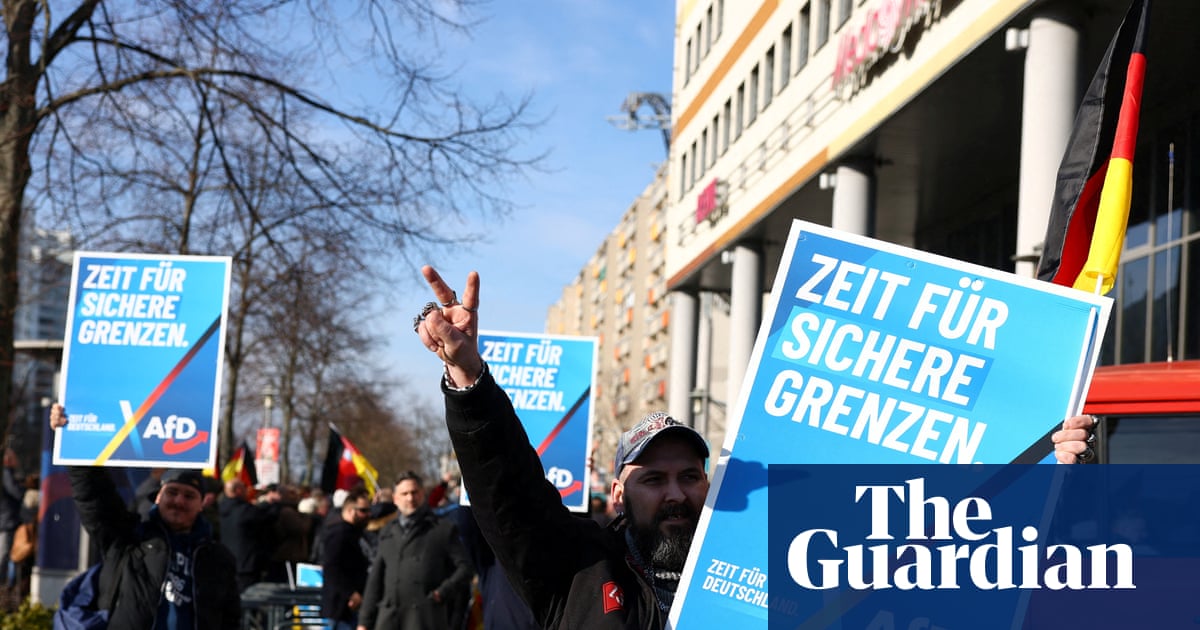Rights group also finds rise in openly gay, bisexual and transgender people running for office in 36 countries
However, there were also gains for LGBTQ+ representation in some countries. Openly gay, bisexual and transgender people ran for office in at least 36 countries, including for the first time in Botswana, Namibia and Romania – albeit unsuccessfully – according to the report by Outright International. The number of LGBTQ+ elected officials doubled to at least 233 in Brazil.
As the visibility of LGBTQ+ people has risen in many countries in the last decade, so too has a backlash from conservative parts of societies, fuelled in many cases by far-right activists and politicians using gay and transgender people as scapegoats for other problems.
There is a growing “weaponisation of hate”, said Alberto de Belaúnde, a director at Outright International, an NGO that promotes LGBTQ+ rights globally.
He said: “You talk with a politician from Peru … or Hungary or the UK, you start to see common trends and you realise that it’s a global, coordinated and increasingly well-funded effort to diminish LGBTIQ people.”
LGBTQ+ candidates for office were subject to online hate speech from election opponents and their supporters in El Salvador, Finland, Pakistan and the US, where Sarah McBride was elected as the first transgender member of the House of Representatives.
During the 2024 US elections, Republican campaigns spent $200m (£147.5m) on anti-transgender adverts on network TV (not including cable TV or streaming), according to data from advert tracking firm AdImpact.
In the campaign for parliamentary elections in the former Soviet republic of Georgia in October 2024, the ruling Georgian Dream party claimed that LGBTQ+ activists were “foreign agents” of the west, out to corrupt the country’s “traditional values”.
During election campaigns in Ghana, where gay sex is criminalised under a colonial-era law, both of the two main parties said they would protect “family values” while accusing the other of being pro-LGBTQ+.
Before the June 2024 EU elections, in which far-right parties made big gains, the Fidesz-KDNP coalition of the Hungarian prime minister, Viktor Orbán, claimed that the “Brussels elite and the Soros network, fattened up with EU money, are waging an ideological war: re-educating our children with gender propaganda.” In Germany, the far-right Alternative für Deutschland said it was against “other forms of cohabitation than between a man and a woman” being treated equally.
In Indonesia, which voted in February 2024, the National Human Rights Commission condemned reports that politicians had vowed to “eradicate LGBT”. And while all three main parties in Pakistan promised to respect the rights of transgender people, trans candidates reported being verbally harassed in person as well as online on the campaign trail for the February 2024 vote.
The Outright International report said that rises in discrimination against minorities had come hand in hand with growing authoritarianism: “In 2024, as in previous years, LGBTIQ communities and other marginalised groups were among the first casualties of these anti-democratic attacks.”
Source: www.theguardian.com
